According to a 2021 study from Yale School of Medicine, about 30% of patients hospitalized with COVID-19 developed acute kidney injury (AKI), a form of kidney failure that occurs suddenly and is reversible with prompt treatment. Patients hospitalized with COVID-19 were twice as likely to require renal dialysis (CRRT) as patients hospitalized for other reasons, NBC News reported.
In a new study published by the UCLA Health System (USA), scientists analyzed the electronic medical records of about 3,500 patients aged 18 and older, hospitalized for COVID-19 at a large academic hospital from March 2020 to March 2022.
The team divided patients into two groups: those who had received at least two doses of an mRNA vaccine (Pfizer or Moderna) or one dose of Johnson & Johnson, and those who had not received any vaccine.
The results showed that about 16% of unvaccinated patients required renal dialysis (CRRT), compared with 11% of vaccinated patients. In addition, the unvaccinated group also had a significantly higher post-discharge mortality rate.
Continuous renal replacement therapy (CRRT), also known as continuous renal replacement therapy (CRT), is a treatment commonly used in intensive care units (ICUs) when the kidneys lose their ability to filter and regulate body fluids, often in critically ill patients.
“Upon further analysis, we found a clear association between vaccination and reduced need for dialysis, reflecting the vaccine’s overall protective ability,” said Dr. Niloofar Nobakht, associate clinical professor of nephrology at the University of California (UCLA) and lead author of the study.
Dr. Scott Roberts, an epidemic prevention expert at Yale University (USA), also commented: "Although not perfect, the study still provides important evidence that the benefits of vaccination do not stop at protecting the respiratory tract, but also help prevent damage to many other organs."
According to experts, the COVID-19 vaccine does not directly protect kidney cells, but reduces the severity of the disease, thereby limiting the risk of multiple organ failure, including the kidneys. "Vaccination does not directly protect kidney cells, but helps prevent severe progression, thereby reducing the risk of multiple organ failure - including the kidneys," said Professor Yong Chen - Director of the Center for AI and Medical Evidence Synthesis at the University of Pennsylvania (USA).
Experts also say the risk of kidney complications after COVID-19 infection is higher in the elderly, immunocompromised or those with underlying medical conditions. However, according to experts, the damage is mainly related to the degree of damage that tends to be related to the initial condition rather than the virus itself.
“For example, if you compare COVID-19 patients to people hospitalized with influenza, both have an increased risk of kidney damage, and this reflects the severity of the disease during inpatient treatment. In the same group of people with COVID-19, I think the vaccinated group tends to have milder symptoms, so they are less likely to have kidney complications,” said F. Perry Wilson, an epidemiologist at Yale University (USA).
Dr. Jeffrey Berns, a nephrologist at the University of Pennsylvania Hospital (USA), said: "We have seen a number of cases of recurrence or onset of glomerulonephritis after vaccination or after viral infection. This is a group that needs to be closely monitored."
While the UCLA study focused on adults, experts warn that children can also develop acute kidney injury after contracting COVID-19. Another study found that children who had COVID-19 had a 35% higher risk of developing new chronic kidney disease within six months.
In May 2025, US Health and Human Services Secretary Robert F. Kennedy Jr. announced that the Centers for Disease Control and Prevention (CDC) would no longer recommend routine COVID-19 vaccination for healthy children and pregnant women. Many experts worry that this decision could leave unvaccinated children more vulnerable to serious complications if they contract the disease.
UCLA is part of a top public university system in the United States. The UCLA Health System includes the David Geffen School of Medicine, the School of Nursing, the School of Dentistry, and the School of Public Health.
Nhat Le
Source: https://baophapluat.vn/tiem-vaccine-covid-19-giup-giam-nguy-co-ton-thuong-than-nghiem-trong-post552279.html



![[Photo] The Government Standing Committee reviews the planning project of the Red River landscape avenue axis](https://vphoto.vietnam.vn/thumb/1200x675/vietnam/resource/IMAGE/2025/11/15/1763197032149_dsc-0163-jpg.webp)



![[Photo] Action for the Community tells stories of enduring journeys – both intimate and great, yet quiet and determined](https://vphoto.vietnam.vn/thumb/1200x675/vietnam/resource/IMAGE/2025/11/15/1763179022035_ai-dai-dieu-5828-jpg.webp)
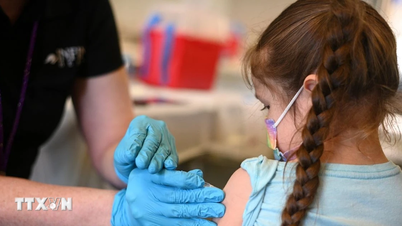




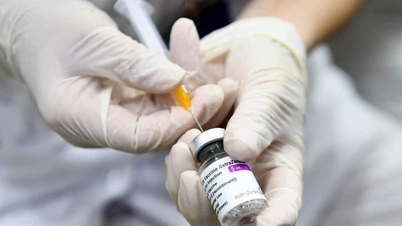

















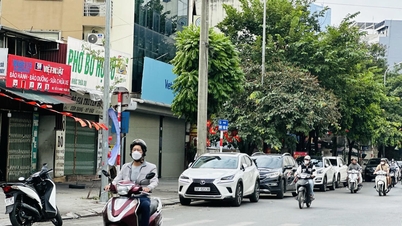
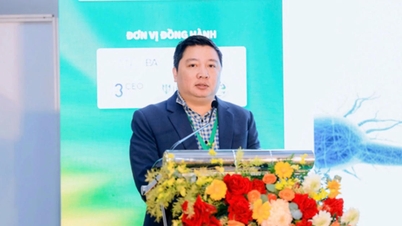

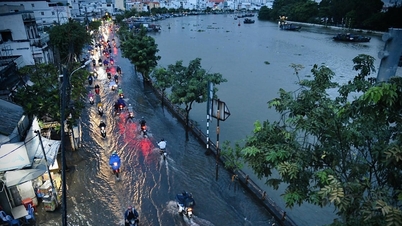












































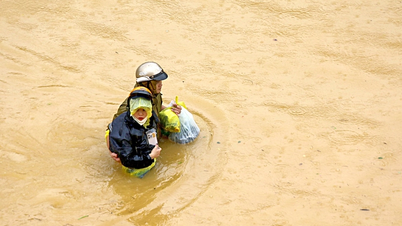






























Comment (0)